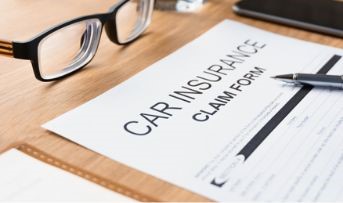General Insurance Blogs, Articles & Updates by - Magma HDI
Have us call you
- RENEW YOUR POLICY
- BUY NEW POLICY

When is the right time to give your child a smartphone
With the world going digital, smartphones have become an important part of our daily lives. Being stuck at home during the pandemic, smartphones became the only salvation from boredom. And children, too, are getting addicted to digital gadgets as we progress in time. Keeping your child away from smartphones is tricky with schools and colleges conducting online classes.
With new-age technologies emerging so quickly and taking over the world, children are very intrigued with how things function. And with all the information available online, it would be one-sided to keep your child away from smartphones and other gadgets and devoid them of all the opportunities.
This blog will discuss the right time to give your child a smartphone. Let’s look at the factors you should consider as a concerned parent or a guardian.
1. Responsibility:
Are your kids responsible enough to handle an expensive device with care? They might bring up a lot of reasons, but as responsible parents, you must ensure that you set up a boundary for the conscious use of these devices to shield them from the risks of the internet.
2. Maturity:
You need to assess the maturity level of your kids before you give them a smartphone. The mind of a child is fickle and very easy to influence. Determine and validate their reasons. Dig a little deeper and have an open conversation about why they want a smartphone. Be their friend in the process.
3. Limitations:
Nobody knows your child better than you do. So ask yourself, can they adhere to limits and rules? Because while a smartphone can serve plenty of good purposes, it can also cause massive amounts of distractions, which can have adverse effects on their academics, physical and mental health, social interactions, etc.
4. Safety:
Online safety is a huge concern these days. Even more so with children since they do not understand the consequences of the invasion of privacy and data exploitation. Your child needs to understand the importance of online safety and how they should communicate with you in case of fraudulent transactions or hints of illegal activities.
5. Carelessness:
Social media is addictive. And once you realise how easy it is to stay in touch with the people you know or get in touch with new people, it becomes challenging to keep off the phone. Adults struggle with this addiction, so it’s somewhat obvious for children to get addicted to it as well. Many children tend to text while driving or in public places, posing a huge risk of accidents.
6. Value money:
Your child should understand the expenses that come with a smartphone and, therefore, use it cautiously. Kids need to be mindful of their internet consumption and use it according to their needs appropriately.
Now that you know when the right time to give your child a smartphone is, you need to think about your kids’ safety and how you can safeguard their wellbeing during emergencies. Stay stress-free by purchasing personal accident insurance online, which caters to your children’s needs in the best way possible. The younger generation is susceptible to accidents due to carelessness and distractions. Personal accident insurance online will ensure your child’s safety with guaranteed benefits and a reasonable premium.
Click HERE to know more about how you can buy personal accident insurance online.
Disclaimer: The information provided above is for illustrative purposes only. To get more details, please refer to policy wordings and prospectus before purchasing a policy.

Top reasons for receiving a partial settlement from a car insurance claim
Insurance is an effective mechanism that protects the insured from the financial loss incurred due to damage to an asset. The prudent instrument protects high-value assets like vehicles, in the absence of which the victim has to shell out large sums of money to compensate for the damages to own property and third-party damages.
Despite the safety provided by online car insurance and its allied merits, sometimes the insurer does not approve a complete settlement, leading to being partially compensated. With proper knowledge regarding the procedure, related proofs, and some tips to remember while making claims, it is possible to receive a complete car insurance settlement.
Reasons for partial settlement:
Comprehensive car insurance is the easiest way to ensure that the insured is covered for maximum damages and receives the entire claim amount. If you haven't purchased comprehensive car insurance, you may encounter only a partial settlement for the following cases.
1. Depreciation:
Loss of value of a car due to wear and tear and usage is an inevitable factor that is considered while paying out claims. Damages to parts, including fibre and glass parts, tubes, tyres, etc., are only settled after considering their depreciated value according to the fixed depreciation rates and the age of the vehicle. A zero depreciation cover can help supersede this clause, but several conditions must be considered to avail of its benefit.
2. Partial car insurance coverage:
A partial cover protects the insured from the financial burden of third-party damages and has fewer inclusions while being less expensive than the latter. The policy restricts customisations and is ideal for infrequently used or old vehicles. The policy excludes NCB and its own damages, limiting its scope and increasing the financial burden on the insured.
3. Policyholder negligence:
Negligence while driving is a major cause of accidents. Suppose your insurer suspects that the driver was under the influence, negligent of general driving safety norms, or holding an invalid driver's licence at the time of the accident. In that case, your claim may be rejected or partially settled, depending on the severity of the issue and the claim amount.
4. Lack of proof:
It is essential to submit valid proof of the accident while filing a claim. With inadequate evidence, the insurer may not process the whole claim amount. Pictures of the accident site, eyewitness testimonies, and immediate filing of an FIR are some of the required proofs asked for by the insurer.
5. The car is used for business purposes:
If the insurer discovers that your personal car was used for business or commercial purposes at the time of the accident, you might not get a 100% claim or even a denial of the claim by the insurer.
Tips to speed up the claim settlement process:
While there is no fixed way to guarantee complete settlement, by following the below stated steps, you can ensure the fulfilment of your responsibilities to ensure that you receive the highest amount of claim possible.
1. Initiate the settlement process immediately:
Starting the process immediately after the accident is vital to ensure a quick settlement. It is ideal for raising the claim within seven days of the accident.
2. Keep all the relevant paperwork ready:
Each payment processed to rectify the effects of the accident, including maintenance of the car or replacement of parts, medical bills, the FIR copy, etc., should be maintained and provided to the insurer as proof.
3. Negotiate your demands:
Before reaching the final settlement, which you must ensure is in writing from the insurer, recheck if the amount is justified. Do not refrain from negotiating the sum with adequate reasoning. Consider seeking the help of a legal professional to make the process faster and ensure that your demands are satisfied.
When purchasing conventional or online car insurance, it is critical to read the fine print to ensure awareness regarding all the inclusions so that you can raise proper claims appropriately to settle at the earliest.
Click HERE to buy online car insurance.
Disclaimer: The information provided above is for illustrative purposes only. To get more details, please refer to policy wordings and prospectus before purchasing a policy.

Seeking to opt for a surrogate mother? Prepare to purchase health insurance
In India, as in the rest of the world, countless single people and couples want to start a family. However, not everyone has the same level of luck, and natural conception may not be an option for certain men, women, or couples. Thus, surrogacy is viewed as an excellent option for resolving this issue.
However, there are several potential problems when deciding to go through with surrogacy. To safeguard intended parents' rights and surrogate moms, the Indian government has enacted new surrogacy legislation, which indirectly impacts online health insurance companies. Keep reading to find out what the law in India says regarding surrogacy.
The Surrogacy Regulation Act in India.
Surrogacy is a burning issue in many parts of the world, considering their complex surrogacy laws. Before commercial surrogacy was banned in 2015 in India, surrogates in India used to suffer victimisation due to the lack of protection by law. It means they had limited support from the law or any other form of government to protect themselves. Plus, they were to follow either the Supreme Court's lead or the advice of the Indian Council of Medical Research.
However, The Surrogacy Regulation Act came into force on January 25, 2022, ensuring fertility services' safe and ethical practices.
Who can get surrogacy?
A surrogate mother must be in good health and between the ages of 25 and 35. She must have been married at least once and raised a child alone. She must also be a close relative of the intended parents. A woman can only serve as a surrogate once in her lifetime under the new Indian surrogacy rules, down from a maximum of three times under the old law.
Regulatory framework for surrogacy in India.
There are two sorts of surrogacy: traditional surrogacy and gestational or host surrogacy. Artificial insemination with the father's sperm is the traditional method. It establishes the surrogate as the child's actual mother.
An embryo created via in vitro fertilisation is implanted into a surrogate mother in gestational surrogacy. It is widely held that gestational surrogacy is simpler than traditional surrogacy, which has led to increased cases involving gestational surrogacy.
Following is a summary of the recent legislation regarding surrogacy regulation, effective as of January 25, 2022.
1. Commercial surrogacy banned:
Commissioning parents in the legally permitted altruistic surrogacy arrangement are responsible for covering the surrogate's medical expenses and providing health insurance coverage. Initially, only commercial surrogacy was legal in India. Earlier, commercial surrogacy compensated the surrogate mother for her services.
2. Health insurance proof becomes mandatory:
Couples who choose surrogacy to have a child must pay for the surrogate mother's health insurance for three years. The IRDA must approve the insurer following the Insurance Regulatory and Development Authority Act requirements. The sum insured must be sufficient to cover all costs incurred by the surrogate because of difficulties emerging during and after the pregnancy.
3. Additional protection for the surrogate mother:
The surrogate mother can end the pregnancy at any time during the surrogacy arrangement. The permission form format to be obtained from the surrogate has also been changed.
The couple must file an affidavit guaranteeing payment of expenses of the surrogate mother, including medical care in the event of illness or the surrogate mother's death and compensation for other losses.
The new surrogacy rules in India are intended to protect the rights of surrogate mothers by guaranteeing them access to online health insurance companies and policies if any difficulties arise during the pregnancy. While this is a positive development, India still has a way to go before we adequately safeguard the rights of surrogate mothers.
Click HERE to buy health insurance if planning for surrogacy.
Disclaimer: The information provided above is for illustrative purposes only. To get more details, please refer to policy wordings and prospectus before purchasing a policy.

Do senior citizens have to wait longer for their health insurance claim settlement
Health insurance policies are a useful tool to tide over any medical contingencies. It is essential for people of all ages, especially senior citizens, to purchase individual or family health insurance that can cover expenses incurred due to hospitalisation or any other allied medical costs. Its importance is only increasing as the medical inflation trends in India increase each year.
We know that age increases the risk of hospitalisation and medical expenses. This creates the necessity to purchase the best-suited comprehensive plan for senior citizens in the family. This article discusses the ideal period for filing a senior citizen’s claim and the time it takes to settle.
The ideal period for filing health insurance claims:
The period of filing the claim is essential in determining the time it requires for processing. Therefore, one must take all the necessary measures to facilitate a speedy claim settlement to benefit from the insurance policy.
Ideally, the insured should file their claim within two weeks for reimbursement claims. This is not a general time frame, as different policies have different time limits. However, claims filed after two weeks of hospitalisation are likely to be rejected or settled later, depending on the case.
Average health insurance claim settlement time:
As per the surveys and research done by the insurance industry, health insurance claims made by senior citizens take 28 days to settle compared to claims made by policyholders younger than 60 years, which take 23.2 days. These results have stirred up interest in the discussion to find the cause behind the delay.
The surveys also state that even the proportion of claim settlements is lower concerning specific conditions like diarrhoea, cancer, or prostate enlargement. However, it is the opposite when related to coronary heart disease. While this may seem alarming to those who have purchased health insurance in India for parents over 60 years, there are simple ways to avoid this.
1. What causes the delay in claim settlement for senior citizens?
The primary cause for the delay in claim processing is the delay in filing a claim. It is essential to ensure that the claim is filed and processed at the earliest opportunity. The findings state that senior citizens may take a while to file claims for numerous reasons, which may cause delays. To avoid late results, senior citizens must file a claim within a week or two and get assured of timely action.
2. A simple tip to ensure timely claim settlement:
It is often seen that young adults purchase health insurance in India for parents not just to protect them from bearing the burden of substantial medical bills but also to file for tax deductions.
However, to claim its primary benefit, it is essential to file claims on time. Since the elderly may require more time to do so, help from the hospital, staff, or relatives to file the claim in time will ensure that it is settled within 23.2 days instead of 28 days.
Carefully read the terms and conditions of health insurance in India for parents that specify information dedicated to senior citizens about the different inclusions and exclusions of the policy. Since medical bills and the risk of falling ill are greater at older ages, it is necessary to be fully aware of the benefits of different policies and file claims within the stipulated period. Help the senior citizens with a good life and healthy well-being!
Click HERE to buy the best health insurance in India
Disclaimer: The information provided above is for illustrative purposes only. To get more details, please refer to policy wordings and prospectus before purchasing a policy.


